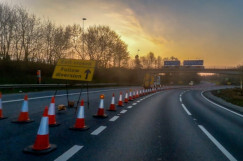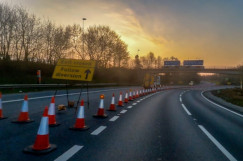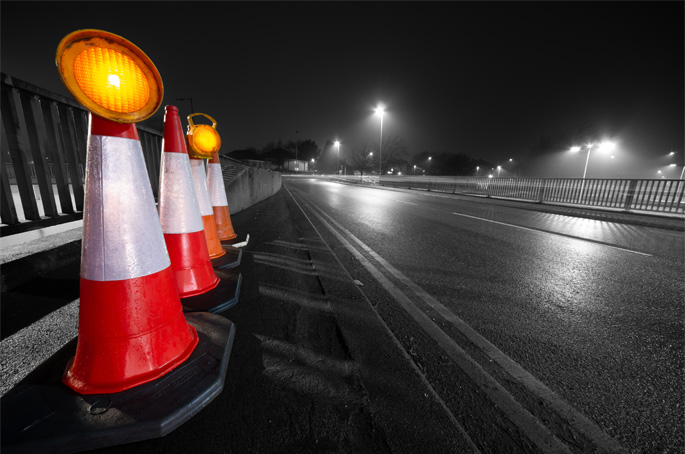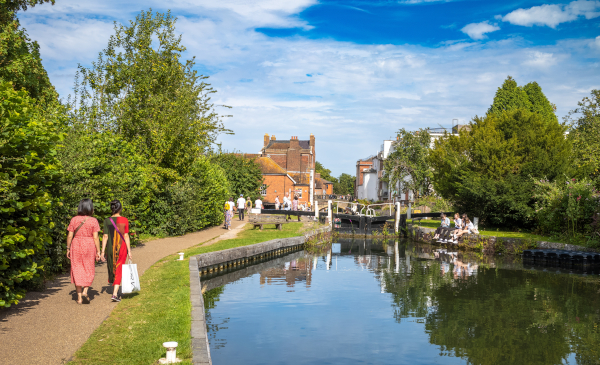New technology developed to help ease congestion has seen '2,100 fewer journeys being delayed on the M6 in a two-month trial', National Highways has announced.
The technology was developed by Cambridge-based company Alchera Technologies and uses AI to generate 'the most favourable works bookings, by using accurate traffic flow predictions and balancing the trade-off between creating financial efficiencies and giving road users the most positive experience'.

Working with Costain, the system was successfully put to the test on the M6 between junctions 21a and 23 in the North West.
In trying to optimise traffic management, reduce road closures and save money, it 'saved an estimated £45,000 by consolidating work and enabling the cancellation of one in 28 shifts', National Highways added.
As a result, Alchera estimates that the use of the technology across all of the strategic road network could reduce the number of delayed journeys by 900,000 and save the public purse £18.2m.
The time-saving technology was one of three finalists in a competition to find new ways to improve people's experiences of road works.
A shortlist of 10 was cut down to three finalists, which were then given the chance to trial their products in real-life situations on England's motorways and A-roads with each receiving £60,000 to take their ideas forward.
Traffic flow levels are an important aspect of planning roadworks as numbers must be at an appropriate rate to enable road crews to work safely.
National Highways executive director for Major Projects, Nicola Bell, said: 'When we launched this competition, our goal was to find new ideas to help reduce the impact of roadworks on road users and people living near works.
'So it's fantastic news that we are already starting to see how effective these new innovations can be both in reducing delays and costs. We know roadworks are frustrating for people but they are an essential part of keeping our roads safe and moving so anything we can do to ease the impact of these important works is to be welcomed.'
Alchera's chief executive Officer, Anna Jordan, said: 'We're passionate about making better use of mobility data to drive intelligent decision-making and wanted to take full advantage of the opportunity to work with National Highways to demonstrate how road user experience can be improved, while still reducing costs.
'The trial has clearly evidenced how our software can be used to reduce the delays caused by roadworks, while also ensuring that works are carried out in the most cost-effective way. We look forward to continuing work with National Highways and their contractors to influence positive change on the rest of the strategic road network.'
The other two companies trialling their ideas are:
• Robok, also based in Cambridge, which uses AI-powered computer vision technology to analyse CCTV footage offering a better understanding of both road user and roadworker behaviour and helping to improve people's experiences of roadworks. This trial was supported by Balfour Beatty on the M25 J10/A3 Interchange. Robok processed over 10,000 hours of video footage and successfully enhanced hazard detection capabilities.
• WordNerds, of Gateshead, brought together over a quarter of a million pieces of textual customer feedback on roadworks and pulled out useful, actionable insights using AI models. Working in partnership with Costain, Kier and Balfour Beatty, the trial led to 16 major actions, from auditing signage issues to exploring EV charging options to improving communications, all based on road user comments.
































